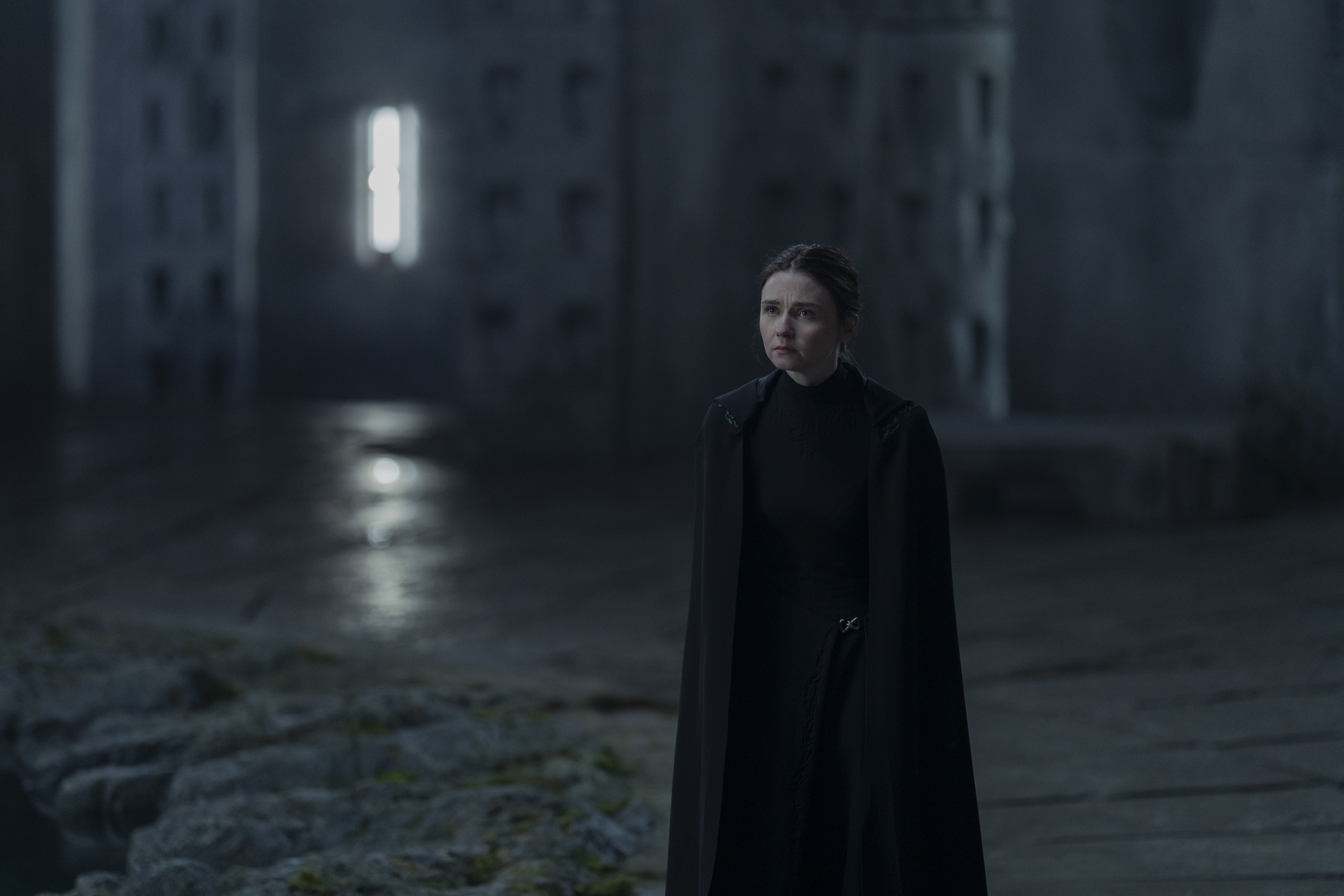The premise of Dune: Prophecy, the latest sci-fi/fantasy lit juggernaut to hit the Max streaming service, is that it’s a show about the rise of the Bene Gesserit order. That is, the secretive sect of all-female psychic eugenicists, advisors, educators, and mistresses to the spacefaring noble houses out of the pages of Frank Herbert’s Dune, and the sprawling saga of novels that has spun out of it.
It’s easy to forget that we’re not looking at the Bene Gesserit as we know it — Valya and Tula Harkonnen (Emily Watson and Olivia Williams) seem to have this Sisterhood pretty well organized already! After seizing power from those who opposed them, they’ve been in charge for 30 years. They’ve got a prophecy to follow, operatives in every upstanding noble house, and a school for acolytes so well established that the emperor’s daughter is fighting to attend. They’re even using traditional Bene Gesserit titles, like “Reverend Mother” and “Mother Superior.”
But despite all that, it’s worth remembering just how much of what we know about the Bene Gesserit has not been invented or put into practice yet in the time of Dune: Prophecy. Because in a show set 10 millennia before the events of Dune, knowing how the Sisterhood will change as it evolves into the Bene Gesserit order gives us some hints at where showrunner Alison Schapker plans to take us, and at the meaty stew of classic sci-fi melodrama they have to dish out.
And that list of signature Bene Gesserit characteristics starts with their signature superpower:
Though we see a young Valya (Jessica Barden) use a preternatural ability to command in Dune: Prophecy’s opening scenes, it seems like an ability that she alone has developed, in secret. In the era of Paul Atreides, the Voice is a core part of Bene Gesserit training, and their ability to force compliance through verbal commands is so well known that Baron Harkonnen has deaf guards specifically for capturing Jessica Atreides, known Bene Gesserit adept.
Their eugenics plan and disdain for direct power
In this premiere episode of Dune: Prophecy, Valya and Tula are agreed on their overall plan for the Sisterhood: to place a figurehead on the Imperial throne that their order controls. Any daughter of the ruling house Corrino would do, but Princess Ynez (Sarah-Sofie Boussnina) is their current candidate. She wants to attend the Sisterhood’s school and learn the art of lie detection for herself, while Valya and Tula intend to manipulate her into unshakable loyalty to the order.
And while the Bene Gesserit of Dune’s era are after much the same goal (a Bene Gesserit-controlled figurehead on the Imperial throne) their methods couldn’t be more different. Somewhere between now and when the Sisterhood becomes the true Bene Gesserit order, the organization abandons the idea of direct power through a Bene Gesserit monarch and takes on a much longer-term plan.
Over several thousand years, the Bene Gesserit will seek to become the arbiters of all marriages, and therefore genetic bloodlines, in the galaxy’s noble houses, using that soft power to eugenically breed a psychic superbeing through which the Bene Gesserit can rule humanity in perpetuity.
The Panoplia Propheticus and the actual prophecy
Valya and Tula are already grappling with the power of prophecy, and what truth, if any, can be derived from it — and yet their current plan doesn’t seem to have a whiff of religious manipulation about them. Over time, that will become another vital tool in the Bene Gesserit arsenal.
In the thousands of years it takes for the Bene Gesserit eugenics plan to percolate, the order uses a widespread network of agents — the Missionaria Protectiva — to seed the religious prophecy of the coming messiah throughout the galaxy’s downtrodden, poor, and lowborn. Thanks to this secret mandate — the Panoplia Propheticus — Bene Gesserit adepts can find a haven on any world, from a manufactured cultural tradition of protecting and respecting witchy women. And, when the Bene Gesserit messiah, the Kwisatz Haderach, appears, humanity will be primed to follow him.
From Dune, we know that the Bene Gesserit plan will eventually fail on its penultimate step: Paul Atreides, born a generation early, will take on the mantle of Kwisatz Haderach to get revenge on House Harkonnen and answer Fremen pleas for freedom. But the women who began the Bene Gesserit had every intention of keeping their messiah under the order’s thumb.
What does all this mean for Dune: Prophecy?
Well, the show’s premiere episode, “The Hidden Hand,” has already put the Voice on screen, waiting for Valya to share that superpower with the rest of the order. It also tells us that somewhere in here, leadership of the Sisterhood is going to change their minds about overtly seizing the Imperial throne — Princess Ynez is not the organization’s path to galactic domination. And, somewhere in the wings, is the Bene Gesserit realization that the power of religion to control the masses is too great to not be weaponized.
Whether we’ll get all of that in Dune: Prophecy’s first season, or if Alison Schapker and crew plan to parcel it out in later seasons, remains to be seen.
